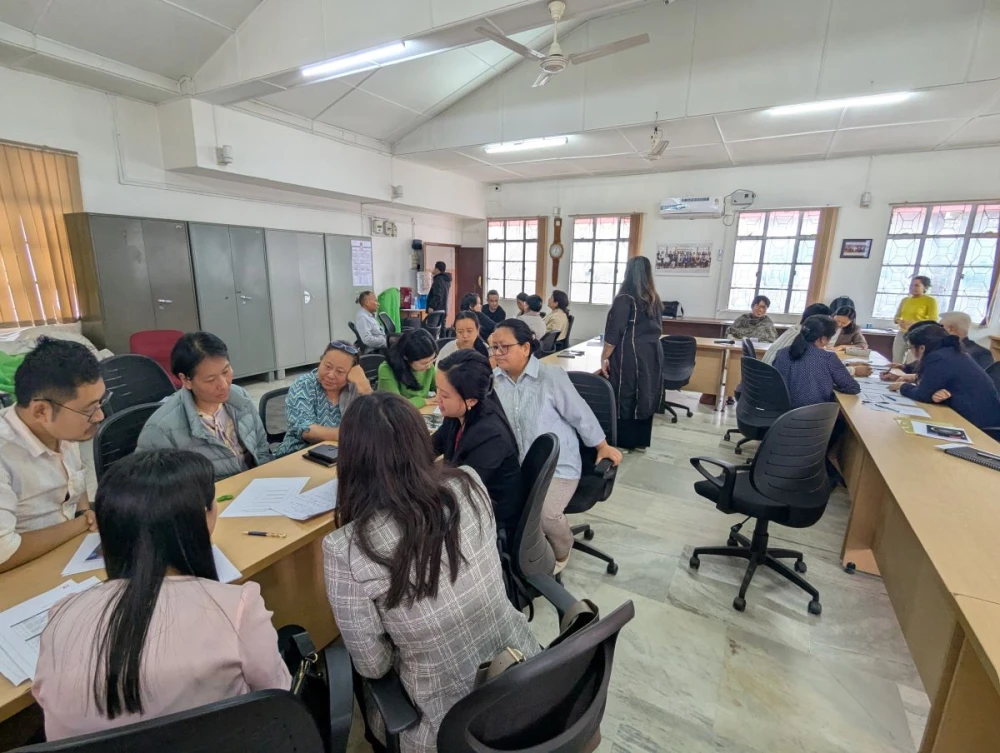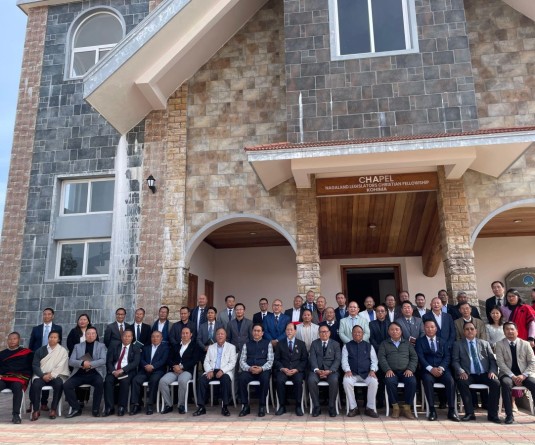Group discussion among the participants during the workshop on the Change Management Plan for Exam Reforms conducted at the NBSE, Kohima on May 1.
KOHIMA, MAY 1 (MExN): A workshop on the Change Management Plan for Exam Reforms was conducted at the Nagaland Board of School Education (NBSE), Kohima on May 1. The event aimed to bring together key stakeholders to evaluate and discuss a comprehensive roadmap for implementing examination reforms across the state.
In her opening remarks, Avelu Ruho, Deputy Project Director of NECTAR, highlighted that the collaborative efforts between sister departments under the School Education sector have laid the groundwork for transitioning from rote memorization to competency-based assessments, in line with the National Education Policy (NEP) 2020. She also expressed appreciation to NBSE for its active partnership, which she said had yielded critical findings to guide the reform process.
NBSE Secretary, Rangumbuing Nsarangbe, acknowledged NECTAR's support in facilitating extensive capacity-building initiatives for various stakeholders. He urged officials from the State Council of Educational Research and Training (SCERT) and the Directorate of School Education (DoSE) to engage in detailed discussions on the next steps toward implementing the proposed reforms.

The technical partner, Educational Initiatives, presented their analysis of current examination practices and proposed key recommendations in four areas: Strengthening Evaluation Practices, Strengthening Inclusive Assessments, Enhancing School-Based Assessments, and Improving Paper-Setting Structures.
Kevileno Angami, Commissioner and Secretary, School Education & SCERT delivered the closing remarks. She stated that for Exam Reforms to work, one of the most crucial elements is the collaboration between NBSE and SCERT. For any assessment related reform to be meaningful, the reforms need to start with the curriculum design and the alignment of Learning Outcomes (LOs) designed by SCERT and NBSE.
She further stated that even the exam conducted by DoSE for the Primary School Leaving Certificate (Class 5 exams) needs to follow the same structures laid down in the paper setting structure, evaluation practices, school-based assessments and inclusive assessments adopted by NBSE and SCERT.
She also stated that institutionalisation of these reform measures now depends on how the Department carries it forward, with NBSE and SCERT at the helm.
Participants at the workshop also deliberated on the roadmap for ensuring the sustainability, institutionalization, and eventual handover of responsibilities related to the reforms across the various wings of the Education Department.






